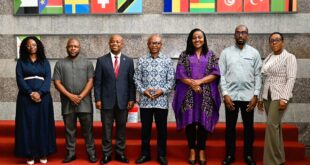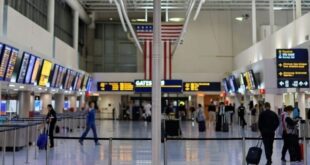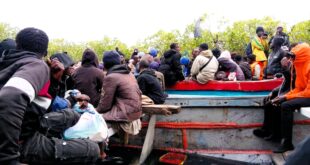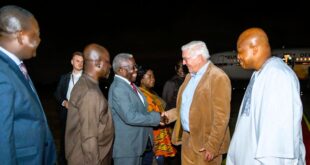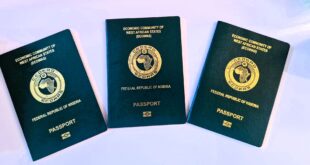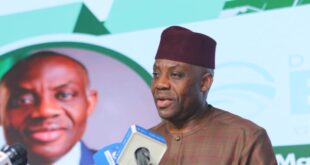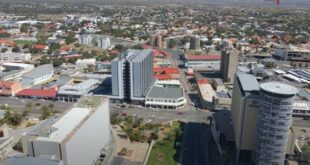Kenyans, Rwandans, and Angolans go to the polls in August to vote for president and members of parliament. The elections in Rwanda and Angola do not promise any surprises as the ruling parties in both countries are well entrenched in power. Kenya however is another matter.
————————
Kagame to continue
The 4 August presidential election in Rwanda is seen as a walk in the park for incumbent Paul Kagame and the ruling Rwandan Patriotic Front. The 59-year-old Kagame has been the de facto leader of the country since the genocide of 1994 even though it was in 2000 that he officially took office as president when he replaced then President Pasteur Bizimungu. Bizimungu had resigned paving the way for then Vice-President Kagame to take charge of the country still recovering from a devastating civil war.
This election is the third since Kagame became president. He won the 2003 and 2010 polls with landslides. Garnering over 90% of valid votes cast both times.

In 2015, two years to this years’ polls in which he was not eligible to stand, he proposed a constitutional referendum to remove term limits which was overwhelmingly endorsed allowing him to contest on 4 August. Kagame is certain to get a new seven-year term to steer the affairs of the country seen as one of Africa’s rising economic powerhouses.
Kenyatta versus Odinga
In Kenya, where on 8 August incumbent President Uhuru Kenyatta will seek a second and final 5-year term, the contest is expected to be tough. Kenyatta, the son of the country’s first president, Jomo Kenyatta, is being challenged by veteran opposition leader Raila Odinga, who is contesting for the presidency for the third time. Odinga, son of a legendary Kenyan politician, Odinga Odinga, is throwing everything into the election as at 72, this may be his real last chance. The murder of a key election official just a week to the election, has heated the polity in the East African country. Chris Msando, who was the head of information, communication and technology at the Independent Electoral and Boundaries Commission (IEBC), was found murdered on Monday, sparking outrage in the country.

Kenya is no stranger to political violence, particularly when elections are held. In 2007 more than 1,200 people died after Odinga called for street protests after losing the election to former President Mwai Kibaki.
Both sides have accused the other of underhanded tactics in the run-up to the polls, with the president saying Odinga is trying to divide the nation and provoke violence, and the opposition leader claiming Kenyatta plans to rig the poll.
Polls predict a tight race and observers fear there could be violent clashes between supporters of the ruling Jubilee Coalition and the opposition National Super Alliance after the election result is announced, with the losers refusing to accept defeat.
Dos Santos goes but party remains
The election in Angola on 23 August will mark the end of the 38-year rule of President Jose Eduardo dos Santos, who is not running for re-election. After Equatorial Guinea’s longtime leader Teodoro Obiang Nguema, the Angolan leader , in power since 1979, is Africa’s longest serving president. The ruling People’s Movement for the Liberation of Angola (MPLA) had chosen Joao Lourenco as Angola’s next strongman at its congress in December 2016. There is little doubt in Angola that he will become president after the elections. With a fragmented opposition, the MPLA is certain to face few obstacles in sweeping the polls as usual.

Elections are becoming routine in Africa, a sign that a democratic culture is putting down roots in the continent. However, in many countries the ruling party has become so synonymous with the state that the opposition practically has no chances of unseating incumbents, critics contend. Such is the case with Angola and Rwanda.
Kenya is a vibrant democracy but with the weakness of elections having the potential for fuelling ethnic violence. Whatever its deficits, democracy has generally improved the climate for human rights and economic development in Africa, say optimistic analysts.
Kwame Appiah & Zachary Ochieng
 THE AFRICAN COURIER. Reporting Africa and its Diaspora! The African Courier is an international magazine published in Germany to report on Africa and the Diaspora African experience. The first issue of the bimonthly magazine appeared on the newsstands on 15 February 1998. The African Courier is a communication forum for European-African political, economic and cultural exchanges, and a voice for Africa in Europe.
THE AFRICAN COURIER. Reporting Africa and its Diaspora! The African Courier is an international magazine published in Germany to report on Africa and the Diaspora African experience. The first issue of the bimonthly magazine appeared on the newsstands on 15 February 1998. The African Courier is a communication forum for European-African political, economic and cultural exchanges, and a voice for Africa in Europe.


